Your Turn
Chapter Six
This class? Everything you’ve learned so far?
The knowledge you’ve acquired are tools for your tool kit – an opportunity to explore your passion and find your voice and unleash your creativity and see what’s possible when you try.
Try?
Yes, try to do better by both people and nature, in big ways and small ways, in this class and in this life.
As innovator Jerry McGrath says:
“We have a moral responsibility to be accountable for our own decisions and to own the things that we do. And when we start turning that over to other people, and groups of people, then we’re not really living a full life.”
And we should all try to live a full life. We should all strive to create a better life, a better world – no matter what our vision of better might be.
That’s why, through the lens of this course, we’re challenging you to re-imagine what a better balance between people and nature might actually look like; an idea that you will work to test and perfect and advance in this class and in our world.
So, what would you do differently? What’s your better idea? What change do you want to see enacted? What world do you want to grow-up in?
Don’t be over whelmed: You got this.
“And we can do it. That’s the funny thing. We can always do it. It’s just whether we choose to or not.” – Barbara Cartwright | Welfare Advocate
“If you don’t participate, there’s no outcome. It’s your choice, but you’re not affecting the future that way.” – Donn Lovett | Political Organizer
“People don’t really realize that if they’re not doing something about it, then that doesn’t necessarily mean that we can rely on policymakers to do something about it.” – Miranda Andersen | Youth Leader & Filmmaker
“To me, it’s so much more painful and unsustainable to sit back and not do anything than to try to find a way to do something, even if the something that I’m doing is only making a small impact. I have an internal compulsion to try and make that impact.” – Nikki Sanchez | Indigenous Media Maker
“We know though that people are more likely to take actions if they see other people also taking actions.” – David Cooper | United Nations
“It’s not hard to make a difference. And if everybody makes little changes, that’s a huge difference.” – Camilla d’Errico | Artist
“When we start with just one drop off, it creates a ripple effect that results in a sea of positive change.” – Shianne McKay | Indigenous Community Builder
“How we are able to learn and think, and the freedom of that, exists today because of government policy or social movements. All of those things have changed today’s society.” – Rick Antonson |
“I encourage youth to recognize that a) they can make a difference if they really put their mind and heart into it; b) that nature is an issue that’s worth making a change for.” – Zeel Patel | Youth Leader & Innovator
“I think there has to be courage: courage to do what we think is the right thing to do.” – Dr. Aleem Bharwani | Cumming School of Medicine
“Coming up with brave and bold new ideas that people can engage in and feel like they’re going to accomplish something is critical.” – Dawna Friesen | TV News Anchor
“And don’t be scared. Because I honestly am a firm believer that 99.9% of the world is filled with really wonderful, good people that only want the best and want you to succeed.” – Mary Young Leckie | Movie Producer
“I can understand why it might be difficult. And why it might be challenging. But don’t let that keep you away.” – Garrick Ng | Storyteller & Entrepreneur
“I used to live from a place of fear. I think growing up with a lot of different traumatic situations, fear was how I protected myself. But, in reality, to really make a difference, you have to step out of your comfort zone.” – Myia Antone | Youth Leader & Indigenous Community Builder
“I think we don’t know what we’re capable of until we sometimes get pushed really hard. And I think we can do things that we didn’t even know we were capable of doing.” – Donna Kennedy-Glans | Author & Former Cabinet Minister
“If you’re curious, if you’re willing to pursue your ideas? Understand that it won’t be easy, but it will be really interesting. And, at the end of the day, you’ll feel really proud of asking good questions and doing work, even if it’s not recognized. I think anyone can create change. And I’m excited. I’m excited for this moment.” – Salimah Ebrahim | Journalist & Entrepreneur
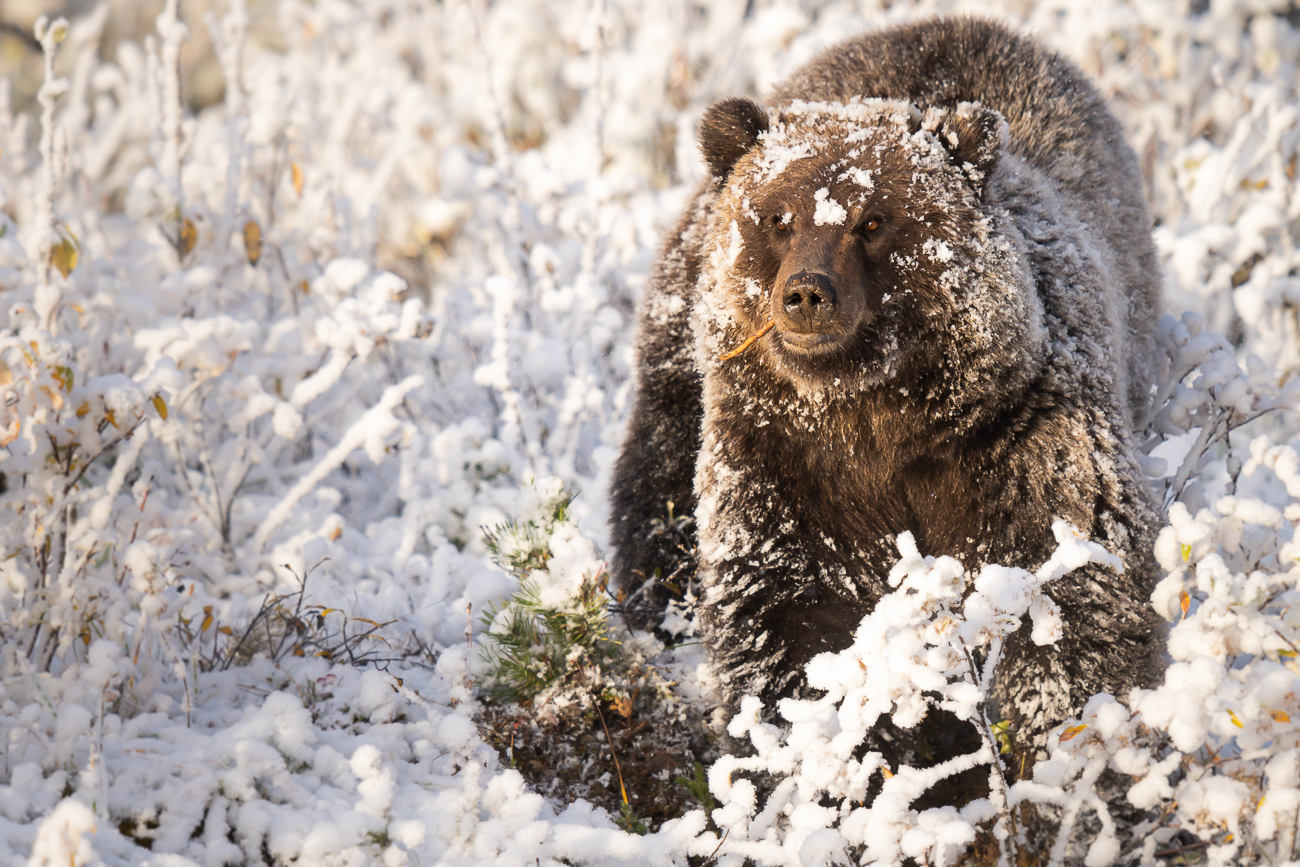
You should be excited for this moment too. After all, better tomorrows start with today’s ideas – your ideas.
Whether you realize it or not, an innovative – if imperfect – idea to advance a better balance between people and nature is within each of you. It’s simply a matter of knowing where to start.
“From a biodiversity point of view, from an environmental point of view, the world does have many challenges. I mean, we are eradicating species, there are plastics in oceans, pollutants in freshwater systems. I mean, the list goes on and on, sadly. So, it starts with finding your passion.” – Karen Kun | Water Advocate and Entrepreneur
“Listen to your passions.” – Jane Thompson | Youth Advocate
“Have a passion.” – Ian Waddell | Former Cabinet Minister
“I would add passion to that list.” – Camilla d’Errico | Artist
“In anything at all, first determine what it is I really care about?” – Barbara Cartwright | Welfare Advocate
“The Qur’an has it, the Bible has it, the Torah has it…heck, in the 60s we had it: ‘To thine own self be true’, as Shakespeare put it. If it feels good, that’s your direction. So, what do you believe in? Who you are, you have to learn to understand that first.” – Donn Lovett | Political Organizer
“What are your values? What are your biases? And figure out where you want to engage. Because there’s lots of times that you may care about something, but you don’t care enough to actually spend the energy to work through the solutions.” – Donna Kennedy-Glans | Author & Former Cabinet Minister
“Because passion is the only thing that’s going to drive you through those all-nighters.” – Camilla d’Errico | Artist
“Each of us have a specific role we can play and it’s about recognizing where your interests and strengths lie.” – Victor Ngo | Urban Planner
“You don’t need to be a genius. You just need to be passionate about it.” – Laura Kennedy | Biologist
“Think about the contribution that you want to make and think about something in the world that you care about, that you can actually help do something about. I think you need to sort of follow your passion, but you need to be really open to ways of following your passion that are not a straight line.” – Sandra Odendahl | Financial Executive
“From politics, to social studies, to science, to art: those all blend together. And, so, if you’re passionate about writing or you’re passionate about art, follow that and link it to broader objectives in nature. I think that’s where you’ll find the most success.” – Nancy Newhouse | Biologist
If you’re aligning mission and passion, that’s where you’re going to find the most long-term satisfaction with your own life.” – Paul McIntyer-Royston | Fundraiser
“To be able to recognize what actually feels true to you, as opposed to what’s supposed to feel true, what other people tell you is true, what you want to believe is true (because it’ll make you cool if you believe it, but in fact, you don’t really believe it)? You have to be able to recognize that. And you have to have the courage, the faith, the lack of fear of failure to pursue it.” – Ian Brown | Writer
“That’s what, to me, integrity is. It’s figuring out what you really care about and walking your own talk.” – Donna Kennedy-Glans | Author & Former Cabinet Minister
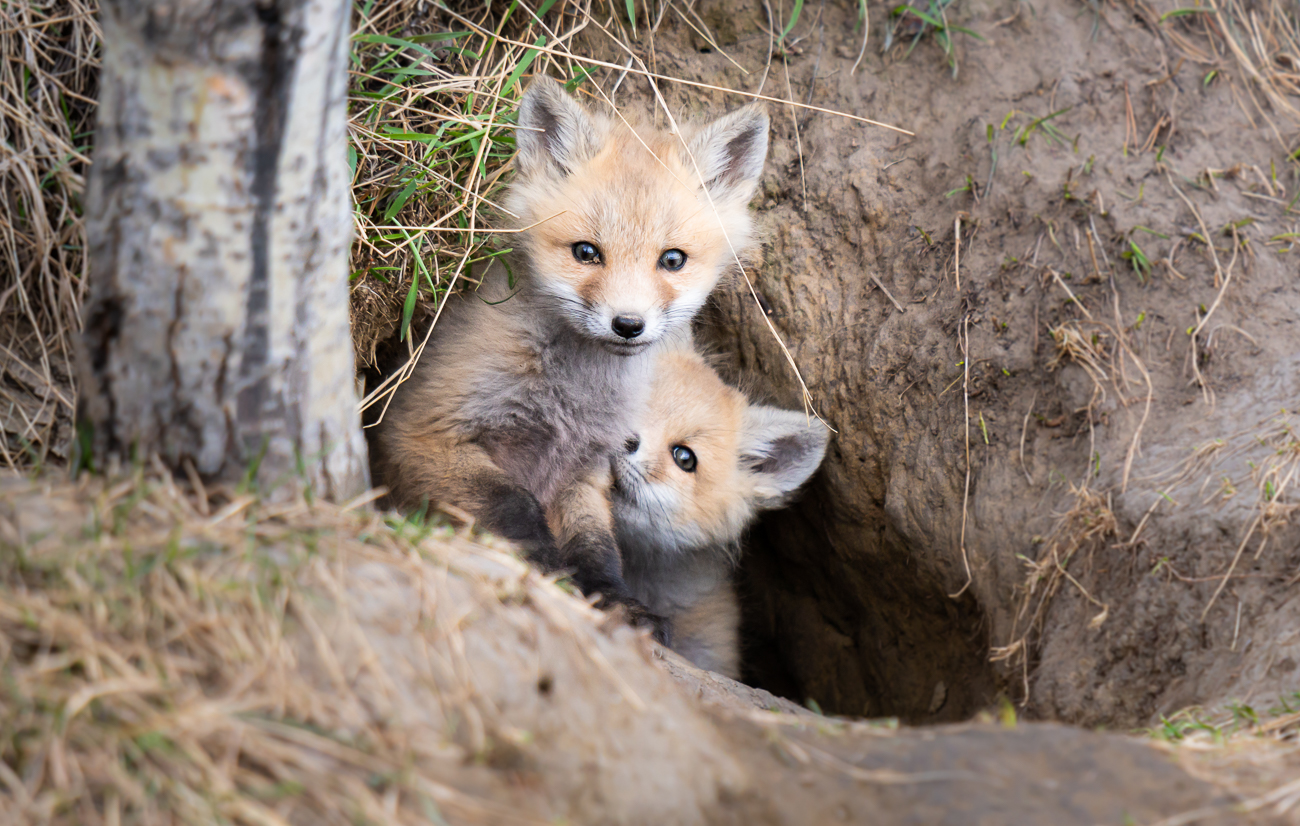
Indeed, understanding your passions, your interests, your curiosities and linking them with your skills is how you unlock happiness, integrity and your own unique approach to problem solving.
It’s the first step to anywhere and anything. The next step?
“It starts with a question or a problem.” – Larissa Vingilis-Jaremko | Youth Leader & Scientist
“Young people not knowing things sometimes can be where the space comes in society for new ideas.” – Ilona Dougherty | Youth Researcher & Advocate
“If everyone is asking the same question, we’re going to get the same answers. If you can bring a new perspective to at least ask a different question, that is what enables you to get to different places.” – Salimah Ebrahim | Journalist & Entrepreneur
“Our world changes when young people believe things that are impossible, and do them.” – Ilona Dougherty | Youth Researcher & Advocate
“So, you need to be in the routine daily of noticing what questions come into your head – noticing what issues are going on in the world – and then writing them down. When the right idea comes into your head – when the idea that really drives you, that feels good, that has momentum – you write it down; you don’t miss it.” – Dev Aujla | Author & Community Builder
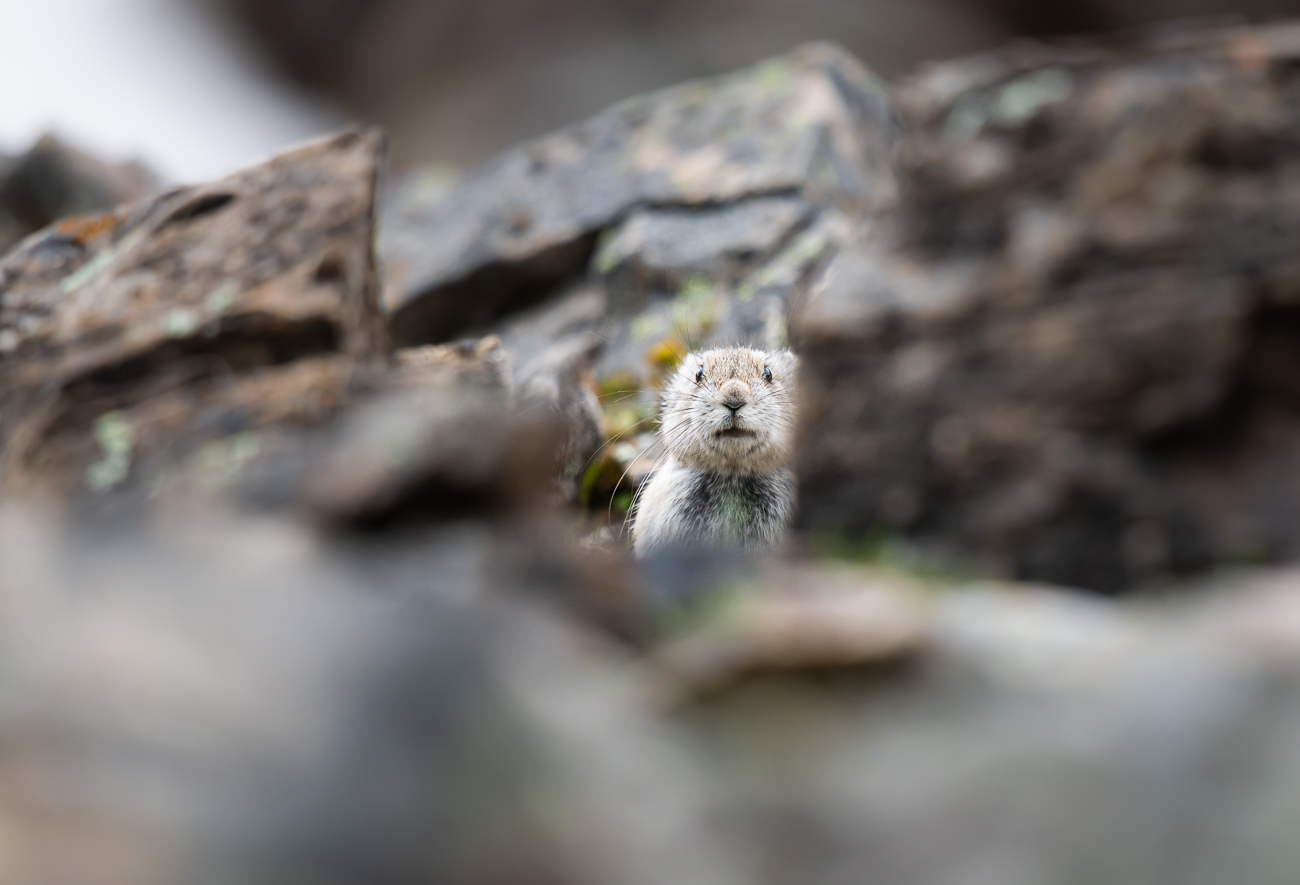
To find that idea, don’t limit yourself. Don’t censor your creativity.
“Okay, so we all need to dream big all the time, no matter what.” – Barbara Cartwright | Welfare Advocate
“Fundamentally, every young person is entitled to dream about the world they want to live in. And they’re entitled to call for that dream to be realized. They don’t need anyone’s permission, and they don’t need to lose their dreams because someone’s cynical.” – Harvey Locke | Biodiversity Advocate
“We should never be dampening young people’s creativity or their belief in big ideas. We should be encouraging them. That’s what we need.” – Ilona Dougherty | Youth Researcher & Advocate
“Dream something that’s so big that it captures the imagination of everybody to want to pursue it. And you know, if you’re doing that, if you’re trying to build something or launch a project or raise a pile of money, people get more inspired the bigger and bolder you are. You have to be authentic about it and passionate about it. It has to be real; it can’t be forced. You can’t have this fake goal that you’re just trying to use to reach halfway. It has to be, ‘if we do this, if we achieve this mega thing, then all these other things happen as well’. And, so, even if you don’t achieve that, you sort of ladder up to ‘almost there’. It’s aim for Jupiter and you might just reach the moon or the stars or Mars. And you’re often the first person to do that, because no one else would have the tenacity – the courage – to actually reach that far.” – Paul McIntyer-Royston | Fundraiser
“Dream big. And just make sure that you have the commitment to follow your dream.” – Mohnish Kamat | Financial Executive
“The people who really do get things done are the people who can focus.” – Sam Sullivan | Former Mayor of Vancouver
“And there’s a million other things that they were thinking about or ways or paths that they may have gone down, but they didn’t choose, that never quite made it into that conversation. And then the ideas that stick around are the ones that you end up seeing on people’s TED Talks.” – Dev Aujla | Author & Community Builder
“So, what do I really care about? And the narrower you can be, the greater success you can have.” – Barbara Cartwright | Welfare Advocate
“Your idea might fail. That’s the thing about all of this: when you dream big, you’ve got to anticipate there’s a surprisingly high likelihood of failure. And if you think about all the big companies of today – the FAANG group of companies – they did kind of start that way, regardless of where they are now. They really did start from this this ambition.” – Paul McIntyer-Royston | Fundraiser
“That is about insisting on better outcomes. Making your community work. Creating better futures.” – Jane Thompson | Youth Advocate
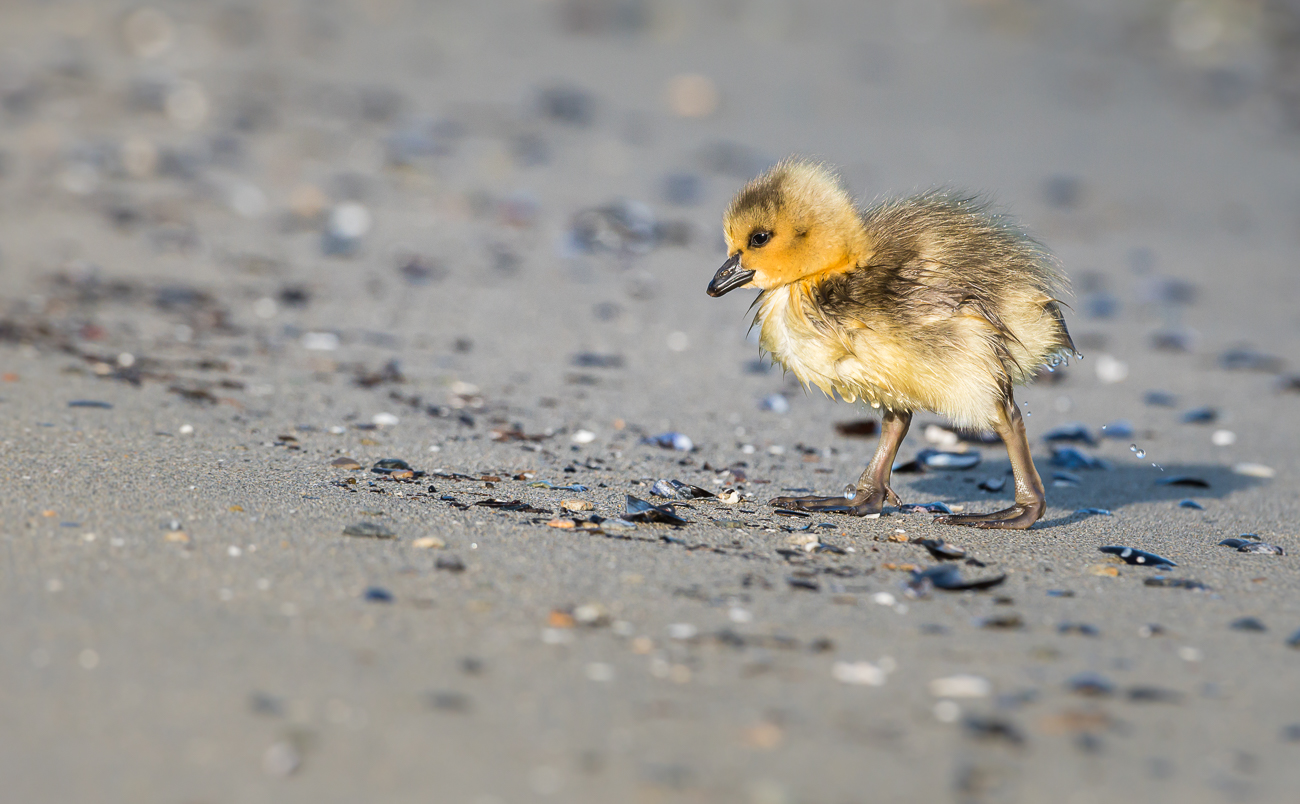
So, you’ve allowed yourself the luxury of dreaming. You’ve got an idea you think might just be creative enough to work. Now it’s time to refine and reframe your solution.
“What is the solution? Is it a specific policy change? Is it an amendment of an existing law? Do you want to create a new law? You need to be specific about what it is that you’re proposing. You know, you can’t just say stop logging.” – Fin Donnelly | Politician
“Don’t just assume that all you can do is protest. You can be part of creating something new.” – Michael Davis | Political Organizer
“So, I don’t care what those new ideas are. I think we should be welcoming a huge amount of diversity.” – Ilona Dougherty | Youth Researcher & Advocate
“There’s a hunger for new ideas and new approaches. Enough with the talking; there has to be some concrete action.” – Dawna Friesen | TV News Anchor
“It’s important that we look at what we can do, rather than what we’re not doing.” – Brian Keating | Naturalist
“We need ideas that give people hope and inspiration and a vision to move towards, as opposed to what they don’t like. Move ahead, not behind. Don’t be looking for 100 critiques. Look for solutions to the challenges that we all face.” – Harvey Locke | Biodiversity Advocate
“Focus on what you’re in favor of, more than what they’re against.” – Ken Wu | Environmentalist
“So, build your ideas for, not against.” – Marie-Eve Marchand | Social Innovator
“Yes, being for something is a great way to put it. Being for something, as opposed to protesting what we are not doing.” – Dawna Friesen | TV News Anchor
“You have to be able to cast a vision that motivates people to move in that direction. And that’s one of the big challenges for the environmental movement. It’s tough because a lot of the messaging is what you shouldn’t do and what you should lose and we need to have that vibrant picture.” – Jane Thompson | Youth Advocate

That vibrant picture? It’s where realism comes in.
Just as dreaming big helps unleash the type of creativity needed to solve big problems, thinking critically about how your bold idea can work within today’s realities is equally important.
“Always, always, always as the bottom line: Pay attention to the political realities of your society.” – Rt. Hon. Kim Campbell | Former Prime Minister
“Fifty-plus-one, bare majorities – or putting together that perfect electoral coalition that lets you essentially govern without considering some segment of the population or some part of the country – that’s not the way to try to bring us all forward together on these questions.” – Dr. Will Greaves | Political Scientist
“Commonalities is where we start. So, let’s bring those perspectives to the table. Let’s figure out how do we collaborate and come up with the best solutions while you still maintain your passion?” – Fin Donnelly | Politician
“That doesn’t always happen. Sometimes the positions are so strident and so intrenched that all these parties do is demonstrate against each other. And that’s unfortunate because when that happens, we’re not making progress.” – Hal Kvisle | Business Leader
“You can’t be hard edge. It’s this flexibility. It’s this understanding of the other side. And how can I affect the outcome, get what I want on the table, while understanding what the other person needs and wants.” – Donn Lovett | Political Organizer
“I’m not saying a compromise or a lowest common denominator compromise, because I think we can do way better than that. If you’re going to come up with solutions, it means you have to really understand the detail and the complexity and the options. If you take one option off the table, what does that mean for something else? So, it’s a give and take, but it’s a better than.” – Donna Kennedy-Glans | Author & Former Cabinet Minister
“We can always do better.” – Sean Mullin | Economist
“I think it’s important to have a broad range of responses in any movement to change. And there’s room for all of them.” – Hon. Janet Austin | Former BC Lieutenant Governor
“Can we achieve societal outcomes using business practices? Can we underly a mission-based approach with enough economic activity to give people a viable livelihood? Anything that could encourage that type of activity would be great.” – Sean Mullin | Economist
“You need to look at more of the long-term costs and benefits to both humans and ecosystems, not just the short-term benefits to humans and what can affect our lives right now. You have to treat the ecosystem as an ‘all my relations’ approach. We’re all related and all walks of life are related. You need to protect everything as you would your own family.” – Shianne McKay | Indigenous Community Builder
“I think the economy, human-wellbeing measured in many social terms, all those kind of things have to come into it today. Ethics of course, overlies it all.” – Hal Kvisle | Business Leader
“I do think that we can find easy fixes to help these species keep doing what they’re doing, and have us keep doing what we’re doing.” – Sarah Ramirez | Biologist
“Be very suspicious of anyone who tells you that there’s an easy way out, and the solutions are simple and that balance is straightforward.” – Cyril Kormos | Forest Researcher & Advocate
“Politics is a complex beast. It has many, many facets that aren’t simple. It’s important that everybody understands that there are a lot of issues that go into a decision. But if it’s a good proposal, and it makes sense, and it’s got strong reasons for it, then it can get done and it has been done.” – Sam Sullivan | Politician
Exactly.
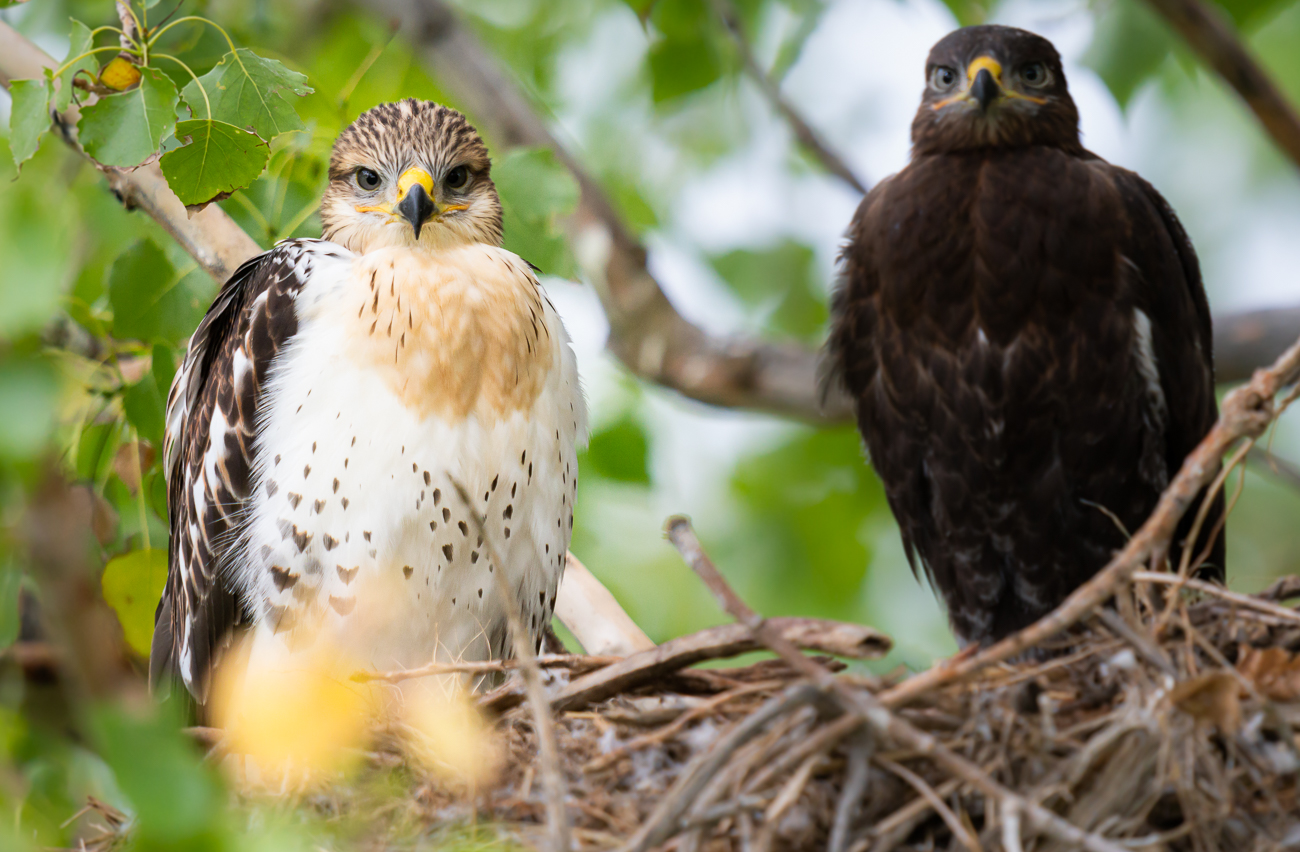
Creative ideas will need to be adjusted and readjusted to work within the messy confines of our democracy – but you know that by now.
Just as you know good ideas can succeed in this system when wild creativity accounts for real-world context.
And when you’ve done that?
“Then you can determine: do you need to take big steps or small steps…” – Barbara Cartwright | Welfare Advocate
“And what’s the scale? Am I looking at just my backyard, my city, my watershed, my river basin? What scale am I interested in working at?” – Fin Donnelly | Politician
“I believe you have to think at all scales. You have to think on the international scale, the national scale, the regional scale and the local scale.” – Harvey Locke | Biodiversity Advocate
“I think it’s timeless wisdom that people should think globally and act locally. That is a really effective way of thinking, given the scale of what they see happening in the world and some of the divisiveness we see happening in Canada and how big these questions are.” – Dr. Will Greaves | Political Scientist
“Just focus on what you can do. And, I find, that if you get involved in something and you see progress, it can give you a sense of hope.” – Brian Keating | Naturalist
“I start with that. And then maybe people pick up on that and it’s a stepping stone to the next bigger thing.” – Joe Urie | Indigenous Tourism Advocate
“And then that leads to the thought process of what are some other ways in which I’m impacting wildlife? What are some of the other things I can do that reduces my personal impact on wildlife and the environment here? It becomes a little bit more tangible, a little bit more viable.” – John Mobeck | Conservationist
“This grassroots, community-enabled, contextualized, localized, the thing that really makes sense whether you’re in Nanaimo or you’re in Drummondville, or you’re in Timmins or you’re in St. John’s: It’s like there’s a contextualized response to how we make a connection to the natural environment. And yet the evidence suggests that if we just leave it to that bottom-up approach, we’re going to miss out on too many things that are either structural or systemic. It’s got to be a both/and.” – Ian Bird
“Both of those approaches work.” Rt. Hon. Kim Campbell | Former Prime Minister
“Whether you know it or not, you’ve got a global reach.” – Stu McNish | Journalist
“I had no idea that I had that sort of global reach and (when I realized it) that’s still to this day what resonates with me.” – Miranda Andersen | Youth Leader & Filmmaker
“So, find that one thing that you really care about and then work towards it. And if you’re the type of person who can take big steps, then take big steps. And if it feels better for you to make a change at the local level, then do that because you’re going to grow your enthusiasm. You’re going to grow your success.” – Barbara Cartwright | Welfare Advocate
“Because there’s place and there’s time. And sometimes you’re in the right place, but it’s the wrong time. And sometimes it’s the right timing, but you’re at the wrong place. And finding the balance between that in life, it’s a big challenge. But if you want to be a social innovator, it’s all about finding the skills, the time and the place.” – Marie-Eve Marchand | Social Innovator
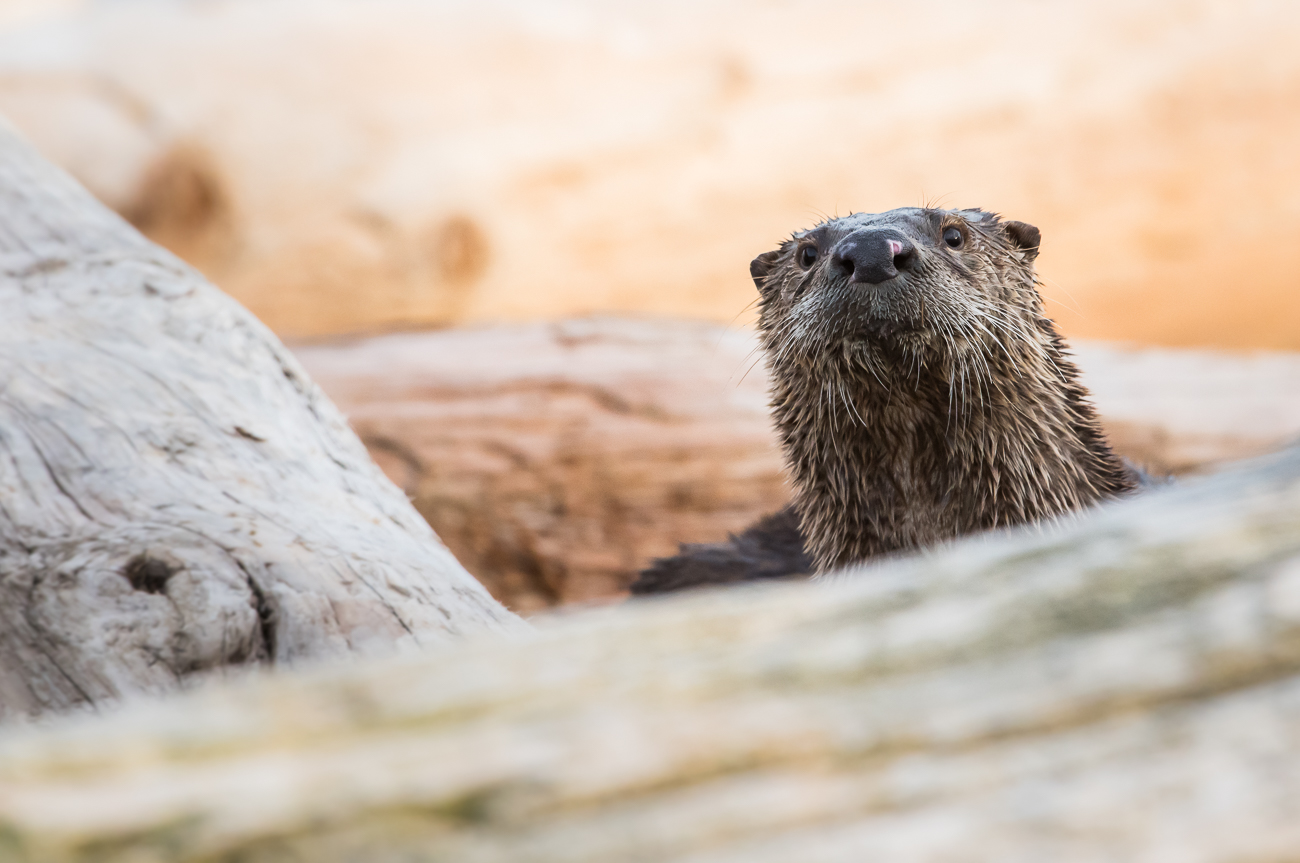
To understand that? To really understand it? Knowledge helps – creating our own and learning from the wisdom of others.
“Anytime you’re interested in an issue, the best thing is to learn everything you can about it.” – Salimah Ebrahim | Journalist & Entrepreneur
“Becoming a subject matter expert is really, really important.” – Karen Kun | Water Advocate & Entrepreneur
“We need to do the research to see what has been studied and what do we know about it? – Larissa Vingilis-Jaremko | Youth Leader & Scientist
“And it’s important to always get out to see places. I fully believe we got to get out there and see things.” – Ken Wu | Environmentalist
“Understand all the perspectives.” – Salimah Ebrahim | Journalist & Entrepreneur
“Learn as much as we can and then talk to people. Not only who are like you – it is important to actually rally our own base – but then we have to go beyond.” – Ken Wu | Environmentalist
“It could be through books; it could be through the knowledge of other people talking to you. But pick up all those ideas and make them part of your storyboard in your head. It doesn’t need to be all written down, but keep it all together. So, as you move along with ideas, you know that you’re connecting those dots (of learning) together” – Marie-Eve Marchand | Social Innovator
“Widespread access to the internet is not necessarily something that’s a reality for everybody. However, we do live in an increasingly connected society. And I think that the onus is on the individual to find and reach out to people who are also interested.” – Libby Garg | Indigenous Entrepreneur
“Know that it’s unlikely that you’re the first person that’s come up with an idea. It may have been decades ago, it may be happening today, but someone has thought about it. Find those ideas; find those people. People whose ideas or solutions resonate with you that perhaps didn’t work at the time. Seek them out. Go and talk to them.” – Salimah Ebrahim | Journalist & Entrepreneur
“When you start a campaign, it’s not about you. It’s about who else is out there. Who else is thinking about it. And how can I add value by working with them. Respect what others know before you start acting. Be curious enough to let other people teach you, so you can move faster. It’s not about wasting time. It’s about going faster to where you want the change to be. And it’s so hard to do it all yourself that you have to let other people know what you want to do.” – Marie-Eve Marchand | Social Innovator
“Where can you make an impact, rather than opening up yet another organization? Can you take an existing organization, leverage its capabilities and bring ideas to an outcome – versus starting a brand-new idea, which will take years to actually come to fruition?” – Mohnish Kamat | Business Leader
“I would say the first step is to go out there and look to see what else is out there already. Because there are so many not for profits currently, that there might already be another group that is doing something similar, or the same as what you’re interested in doing.” – Larissa Vingilis-Jaremko | Youth Leader & Scientist
“There’s a lot of non-profits right now that are run by high school students because we compare the non-profits, whether they be for environmental protection or whether they be for just raising awareness about the social issues that exist today. We often conform to other people’s perspectives, specifically adult perspectives, because we see you guys as having way more wisdom than us. But I think there comes a point where we also need to challenge that. The childhood naivety that we have and the ambition that we have is really what propels us to make this difference. So, every time we concede to another perspective, we really lose certain aspects of that; it really takes away from the ability that we have to make a real-world impact.” – Zeel Patel | Youth Leader & Innovator
“Believe in your project. If you come up with an idea that you think needs to be addressed, then people have to believe in themselves and believe they can make it happen. Anybody can do anything. They just have to want to do it and they have to put the time and work in.” – Bruce Wilkinson | Community Builder
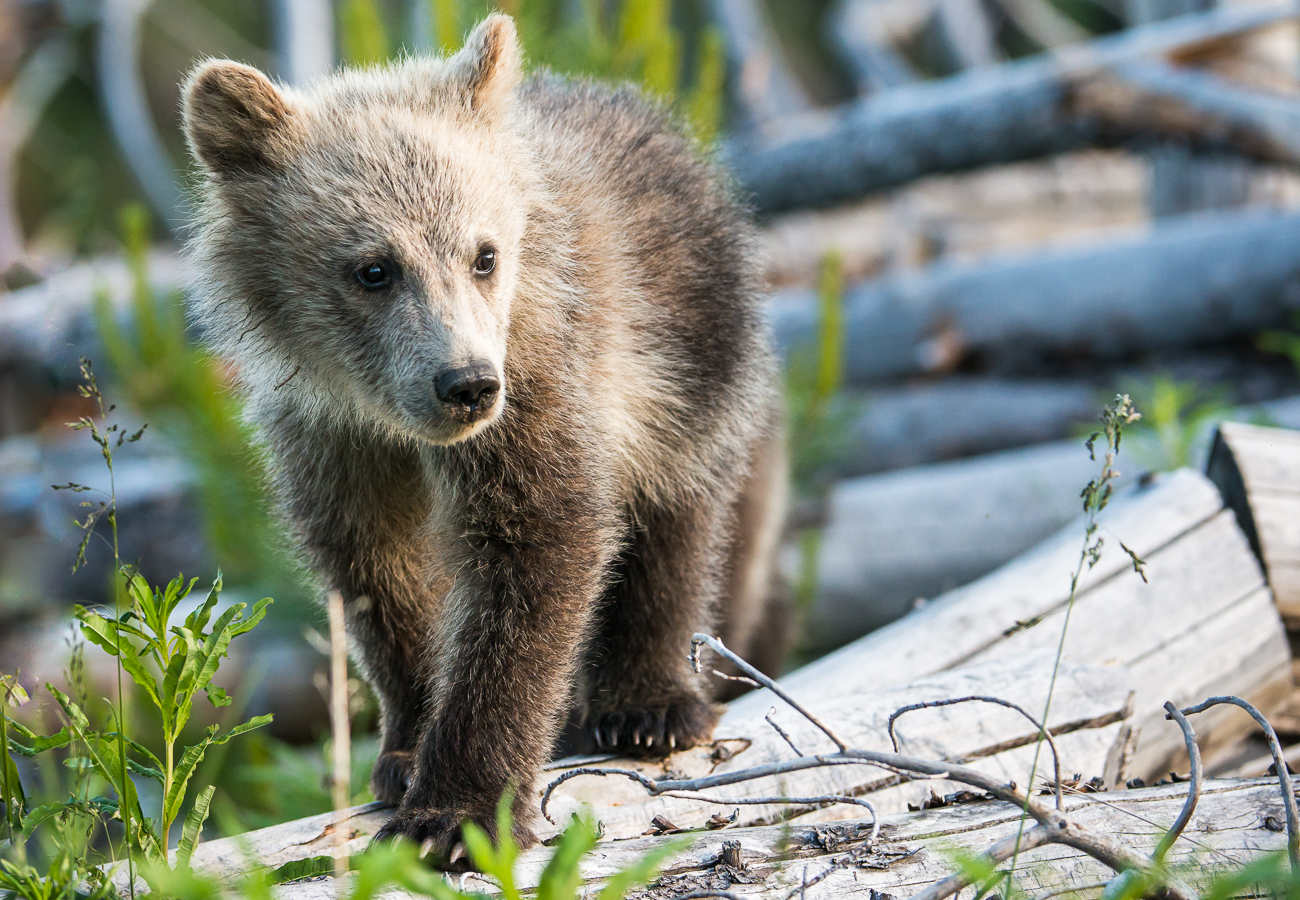
That’s all true. Listen and learn to fill the gaps in your knowledge.
But understand this:
Don’t reinvent the wheel; make the wheel better.
But if your idea doesn’t exist and you think it needs to exist – in the non-profit sector or in business, in policy or media or science or research or career – make it so.
“Okay, we’re here, now we want to go over there. What are the steps that we need to take to get there? Who makes the decision and how do we incent people to move forward constructively to that decision?” – Hon. Janet Austin | Former BC Lieutenant Governor
“We always think strategies are about either/or choices. Actually, strategies are about choosing what not to do.” – Mohnish Kamat | Financial Executive
“You have to recognize that you can’t make all the changes that you might want to make. And, so, you pick your battles.” – Dr. Victoria Lukasik | Biologist
“If you look at what’s effective in political strategy, in marketing, in communication strategy: presence is power.” – Dr. Aleem Bharwani | Cumming School of Medicine
“You don’t need as many people as you think (to make a difference).” – Dev Aujla | Author & Changemaker
“Movements always begin small. And they always begin with a feeling of ownership and, frankly, community organizing. I think it’s a really central principle: the ability of people to organize their communities around ideas.” – Salimah Ebrahim | Journalist & Entrepreneur
“Make it seamless and easy for people to engage. I don’t know that punitive approaches work. I don’t know that guilt and shame-based approaches work.” – Dr. Aleem Bharwani | Cumming School of Medicine
“When you make it easy, people will get on board. When there is a giant, ‘no, no, no, no! You’re doing things wrong! You’re a bad person!’ People tend to close off. It’s natural.” – Shachi Kurl | Pollster
“We need to look at the positives if we want to be motivated to keep going.” – Brian Keating | Naturalist & Storyteller
“Is it a small mammal? Is it a large one? Is it a whale or is it a tiny micro-organism? Whatever it is, believe in it and work at it and really understand it. And the more research that you do, the more information that you can arm yourself with, the more that you are going to be productive in getting your message out. So, just believe in yourself and work really hard and it will all come together.” – Michelle Valberg | Photographer
“I think when you’re honest and you’re sincere and you’ve got a good story to tell, people listen.” – Brian Keating | Naturalist & Storyteller
“That’s when our world changes.” – Ilona Dougherty | Youth Researcher & Advocate
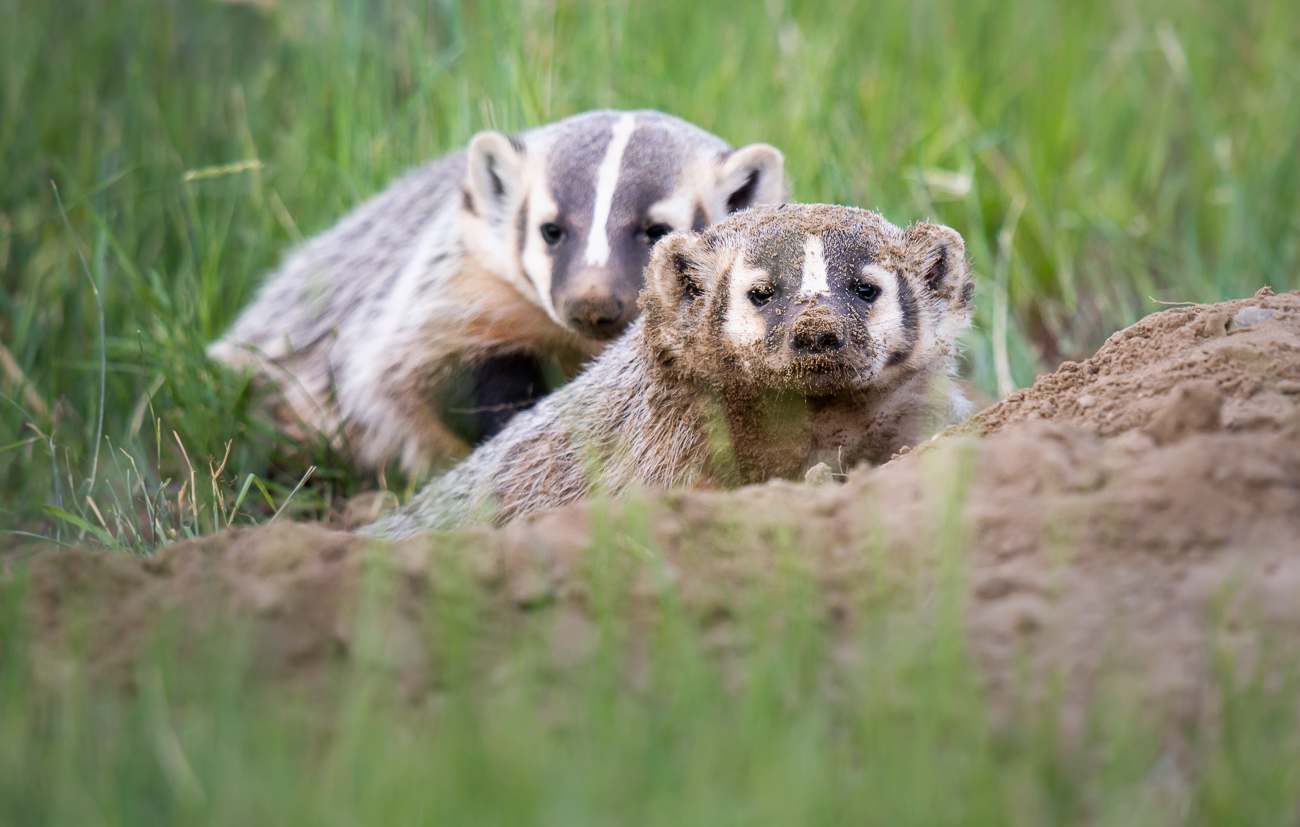
See? It’s not so hard. And remember:
“I think we need to advance change as rapidly as we possibly can – and as rapidly and as proactively as our society can manage it – but we need to recognize that change does take time and cultural change is part of that.” – Hon. Janet Austin | Former BC Lieutenant Governor
“And be sure to stop and celebrate when you get those small changes, or those big changes. I think at a young age it’s so important that we have success and we see that we can make change and not get overwhelmed by the enormity of the issues.” – Barbara Cartwright | Welfare Advocate
“And make it fun to achieve stuff. It doesn’t have to be this serious, heavy thing.” – Jim Bottomley | Futurist
“Make it fun and interesting.” – Ken Wu | Environmentalist
“Make it fun. Make it interesting. Make it exciting.” – Ian Waddell | Author & Former Cabinet Minister
“If opportunities are provided to help build knowledge, skillsets and leadership capabilities, you should take advantage of that. Down the road it’s going to impact your life and your career, in one form or another.” – Shianne McKay | Indigenous Community Builder
“I’m a great believer that you have to be a member of the Academy of Life. Life experiences mean, to me, as much or more than academic qualifications. And when I was hiring people in later years, I would look for people that had done something unusual, who’d made an impact. And I’d think, wow, those are the sorts of people that I’m interested in because they’ve done interesting things.” – Clive Jackson | Journalist
“There’s a difference to me between an entrepreneur and folks who are entrepreneurial. And I think all of us need to be entrepreneurial.” – Garrick Ng | Storyteller & Entrepreneur
“Some people are serial entrepreneurs. Some people are emboldened by public policy. Find where you think you fit and what makes you get up in the morning and makes you want to participate.” – Karen Kun | Water Advocate & Entrepreneur
“And if sometimes it looks weird – if sometimes it’s just little dots of an idea – that’s fine. It doesn’t need to be perfectly elaborate because people will give you feedback and the better you’ll be.” – Marie-Eve Marchand | Social Innovator
“You should always use humility in everything that you do. But it’s so much better just to step forward and start.” – Nikki Sanchez | Indigenous Media Maker
“You’re not going to start out perfect and you’re not going to finish right away. And it’s all part of your larger life’s journey.” – Maggie MacDonald | Artist & Activist
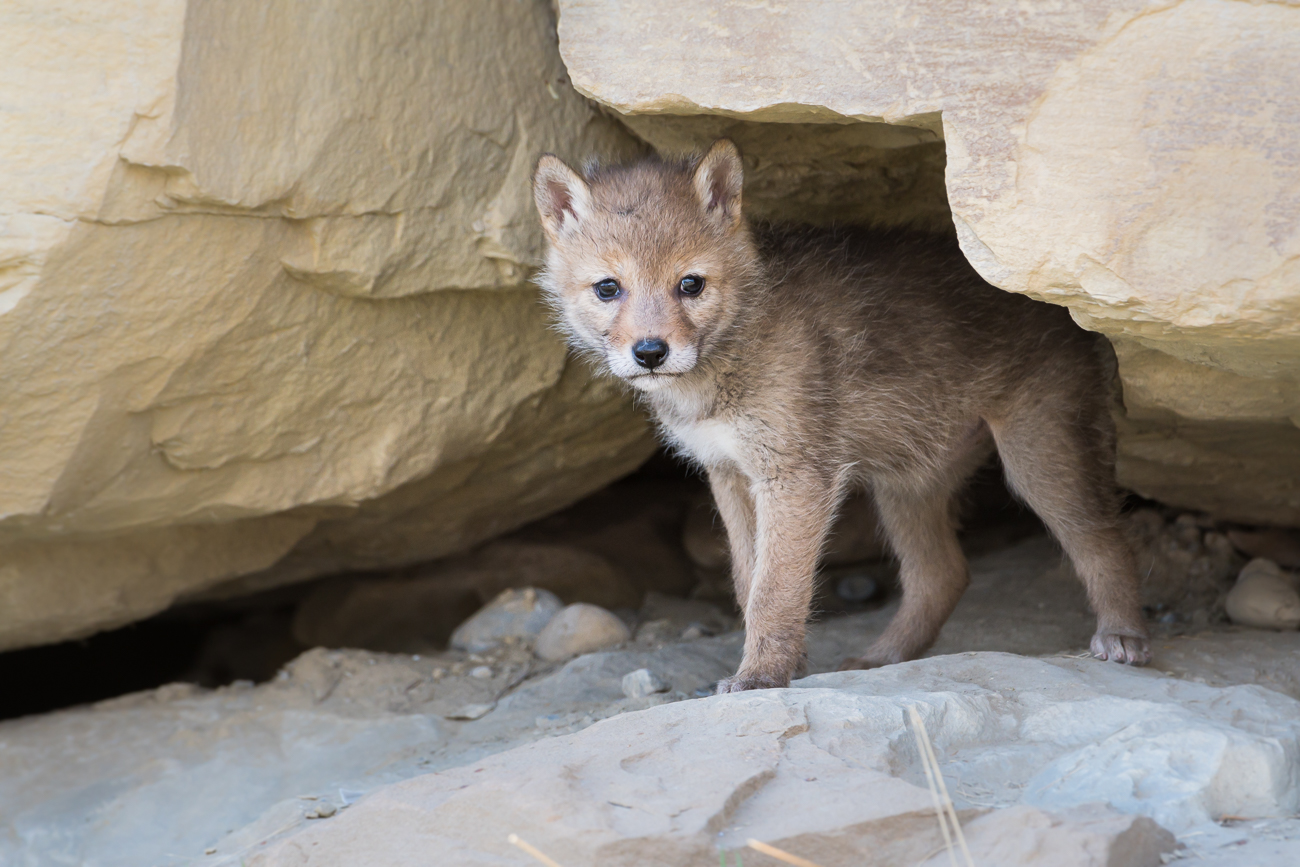
That’s why this process matters. That’s why this class matters.
That’s why your ideas matter. That’s why you matter.
Even if it’s not always apparent, everything and everyone has a purpose; everything and everyone shapes our world.
And that’s not to say every idea or every organism has the same value. That’s not true either.
But because systems are – life is – big and complicated, we often don’t know what or who will alter the course of history.
We don’t know the impact we’ll have until we take a step into the unknown.
We don’t know if one young person – armed with nothing more than a passion – will take hold of a cause and change the world.
But you might.
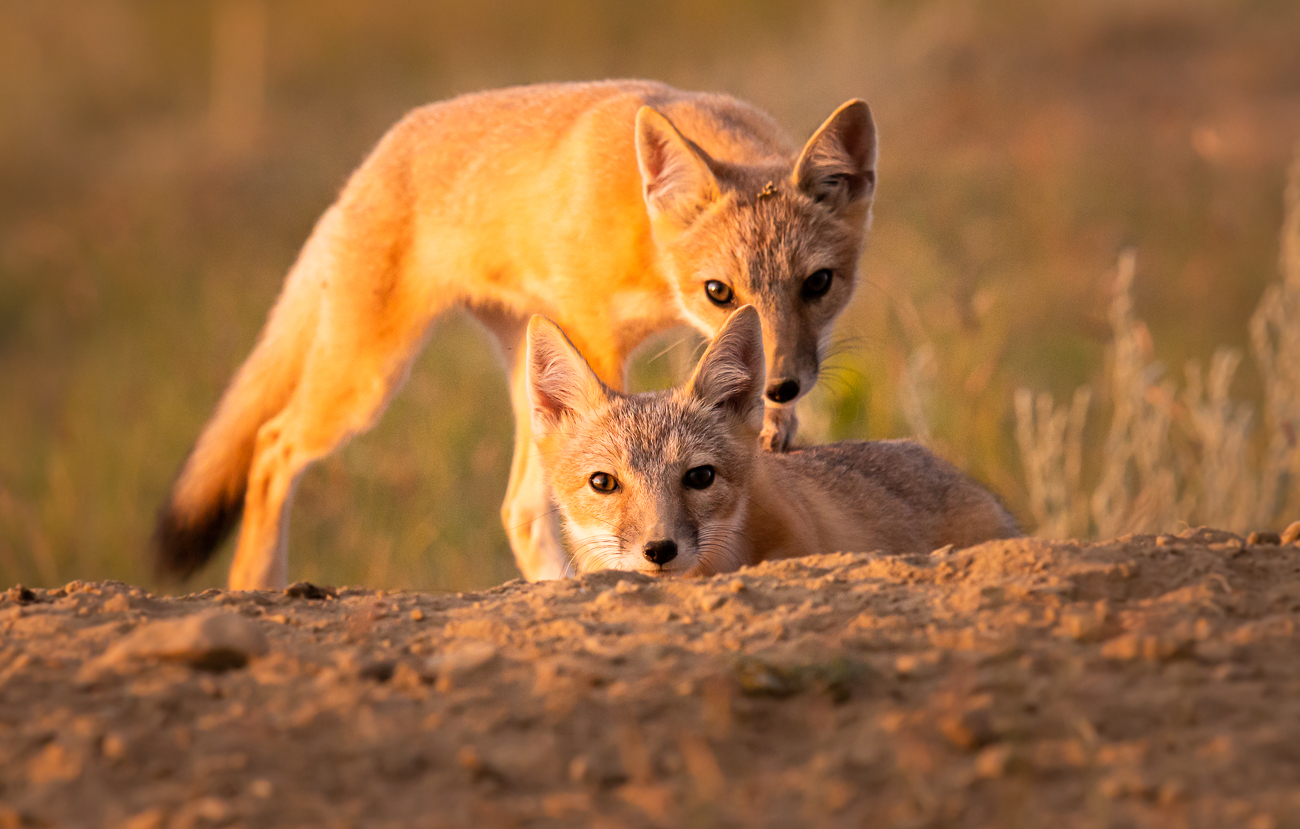
“As an individual, as an organization, we’re more powerful than we think we are. We are all powerful in our own right. And we have power in terms of influencing the conversations we have, in terms of organizing the people around us, in terms of influencing those who make decisions around us. You’re powerful in shaping a narrative and shifting views in the world in which you reside.” – Dr. Aleem Bharwani | Cumming School of Medicine
“Everything you do directs your life, in small ways and large ways.” – Donn Lovett | Political Organizer
“Not everybody can become a Jane Goodall, but we can all be our own individual and we are all powerful in our own way.” – Brian Keating | Naturalist & Storyteller
“One person can absolutely make a difference, even in the choices that we make on a given day.” – Libby Garg | Indigenous Entrepreneur
“I mean, it’s all down to people.” – Jimmy Pattison | Business Leader
“There’s nobody that can’t have a role in protecting our environment.” – Gail Wallin | Invasive Species Expert
“We’ve got a long way to go. We can’t do it all. We need everybody to work together and I think just one person can make a huge difference.” – Elliott Ingles | Mount Robson Area Supervisor
“Everybody that takes personal action is actually building a snowball and making it grow.” – Randall Howard | Angel Investor
“Also, recognize that every little drop does matter. Every story that enters into mainstream thought and conversation does matter.” – Garrick Ng | Storyteller & Entrepreneur
“Speak out and know there’ll be people here to support you and tell your stories.” – Niki Wilson | Science Journalist
“Get out there and try to be that little thought bubble or drop in the bucket because together we can make a difference.” – Garrick Ng | Storyteller & Entrepreneur
“We can save us. We can make those differences and create those things in the world that we know need to be there.” – Dev Aujla | Author & Changemaker
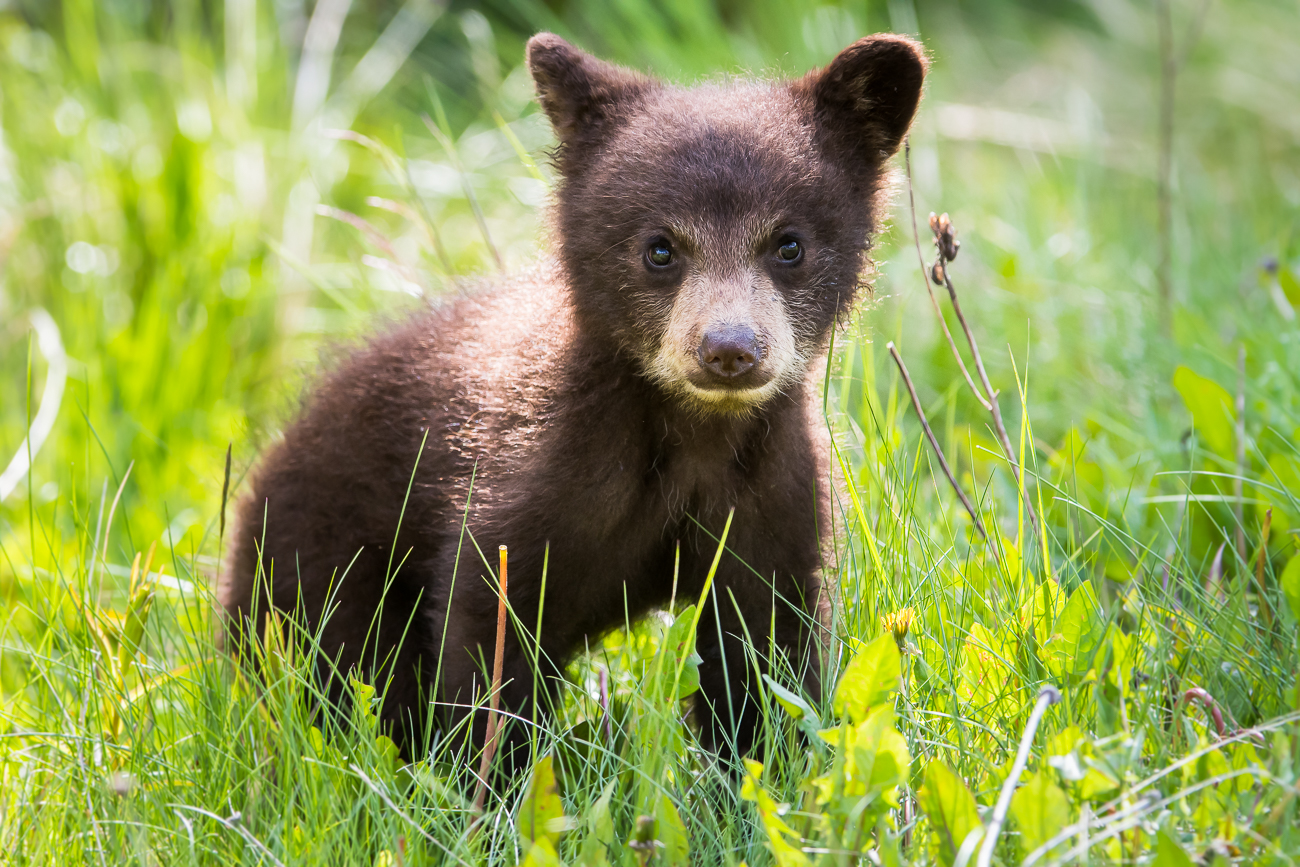
And, yet, we so rarely step out. On our own. With our ideas. To try. To start. Somewhere. Anywhere.
We’re afraid of risk and failure. We’re afraid of disappointing and offending. We’re afraid of the unknown.
That fear? It’s understandable. But it can’t define us.
We can’t let it stop us from trying.
“The most important thing to do? Do it.” – Mary Young Leckie | Movie Producer
“It can’t be said enough: Try something; take the first step.” – Dev Aujla | Author & Changemaker
“Sometimes we overthink things and it’s just that simple.” – Joe Urie | Indigenous Tourism Advocate
“Start and try.” – Myia Antone | Indigenous Community Builder
“You have to be involved. You cannot sit on the sidelines. You cannot sit on the fence. Because if you’re not engaged, you are not even attempting to change; you’re not attempting to make a difference. And if you’re not attempting to make a difference, then are you just becoming part of the problem?” – Donn Lovett | Political Organizer
“We need to try things and get creative.” – Sarah Ramirez | Biologist
“And have the confidence to just go out there and try.” – Garrick Ng | Storyteller & Entrepreneur
“Change is always about confidence. And confidence comes from trying. It doesn’t come from succeeding. And it certainly doesn’t come from being afraid to fail. It just comes from: ‘That’s interesting. I think I’ll do that.’” – Ian Brown | Writer
“And, yes, I can pursue this dream and, even if I don’t know exactly how it’s going to happen, I know that it won’t happen if I don’t try.” – Harvey Locke | Biodiversity Advocate
“We have to keep trying, every day. It’s to understand that in just making an effort, just trying starts to change things.” – Stu McNish | Journalist
“If you have something that you really believe in, you’re right. So go for it.” – Mary Young Leckie | Movie Producer
“Go for it.” Rt. Hon. Kim Campbell | Former Prime Minister
“It can be done. You can do it.” – Ian Waddell | Former Cabinet Minister (These were Ian’s final words in one of his last interviews before he passed away.)
Trying is all we have.
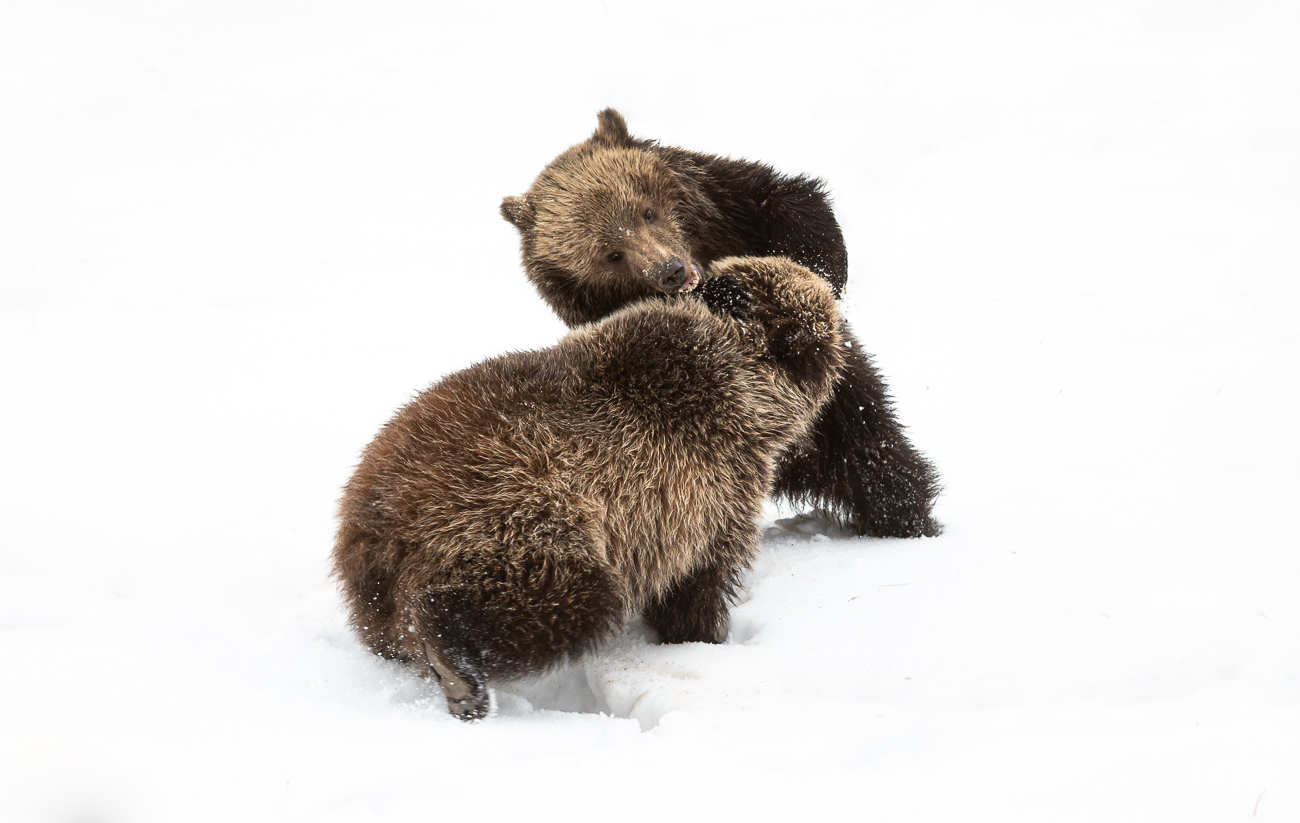 Trying to survive, endure and thrive.
Trying to survive, endure and thrive.
Trying to find new ways of thinking and acting.
Trying to find our way. Trying to find a better way.
Trying to leave our mark.
Just like our two bears.
And who knows how their story will end.
Or ours.
But it’s not how you end. Or where you start. It’s that you start.
So, start.
Try.
And prove that anything we dream is possible when we do.